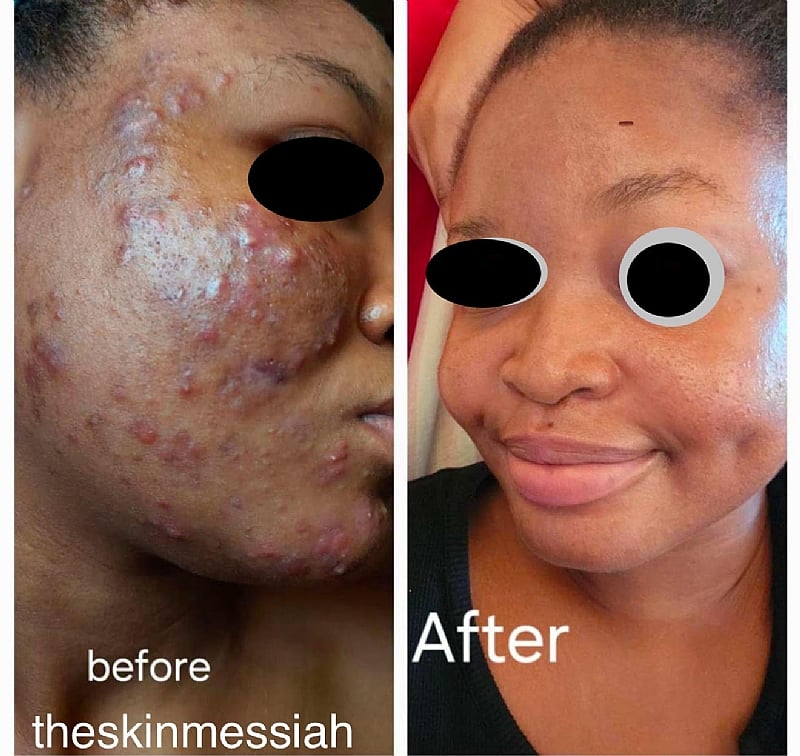Acne, often dismissed as a transient teenage affliction, presents a persistent and significantly impactful condition for numerous individuals. The challenge in managing acne effectively lies not solely in treatment, but crucially in pinpointing and addressing the underlying triggers that initiate and perpetuate the condition. Dr. Kofi Ansah Brifo, a seasoned dermatologist, emphasizes the importance of a comprehensive approach that moves beyond simply treating the symptoms and delves into the root causes of each individual’s acne. He underscores the crucial role of identifying and eliminating these triggers to achieve long-term remission and prevent recurrence. This precision-based strategy represents a paradigm shift in acne management, prioritizing individualized care and patient education for sustainable results.
Acne’s complexity arises from the interplay of various factors: excessive oil production, clogged pores, bacterial proliferation, and inflammation. These underlying processes, however, are often exacerbated by external influences, which can range from hormonal imbalances like PCOS and menstrual fluctuations to lifestyle choices such as stress, inadequate sleep, and diets high in glycemic index foods. Even topical skincare products, particularly those with comedogenic properties that obstruct pores, can contribute to acne development and persistence. Certain medications, including corticosteroids and anabolic steroids, are also known triggers. Recognizing and addressing these external factors is paramount to effective acne management. Simply treating the symptoms without addressing the underlying triggers often leads to frustrating cycles of recurrence.
Dr. Brifo champions a precision-based approach to acne care that emphasizes thorough investigation and personalized treatment strategies. This involves not just prescribing medication but also meticulously investigating potential hormonal imbalances, lifestyle factors, and other contributing elements. He highlights a case where a patient experienced repeated acne relapse despite multiple courses of isotretinoin, a potent acne medication. The recurring acne was ultimately attributed to the patient’s unknowingly use of pore-clogging cosmetic products. Once these products were eliminated, the patient’s skin finally stabilized, demonstrating the profound impact of identifying and removing triggers. This personalized approach ensures that treatment is tailored to the individual’s specific needs and addresses the underlying causes, leading to more effective and sustainable outcomes.
Central to Dr. Brifo’s philosophy is patient education. Empowering patients with knowledge about the underlying causes of their acne is critical for successful management. He stresses that acne is not a random occurrence but often has a specific trigger. By understanding and eliminating this trigger, patients can break the cycle of recurrence and achieve long-term clear skin. This educational approach fosters a sense of ownership and control, enabling patients to actively participate in their treatment and make informed decisions about their skincare routine and lifestyle choices.
Dr. Brifo cautions against treating severe acne without first identifying its triggers, emphasizing that such an approach is likely to fail. He advocates for a comprehensive strategy that addresses both the acne itself and its underlying causes. This holistic approach offers a more sustainable solution than merely treating the superficial symptoms. By targeting the root of the problem, the likelihood of recurrence is significantly reduced, ultimately leading to improved patient outcomes and greater satisfaction.
The prevailing conversation surrounding skin health is increasingly emphasizing holistic and personalized approaches. Dr. Brifo’s precision-based method aligns perfectly with this trend, offering a hopeful shift in acne management. Moving beyond quick fixes and superficial treatments, this approach prioritizes identifying and addressing the underlying triggers of acne, leading to more effective and lasting results. By empowering patients with knowledge and tailoring treatment to individual needs, this strategy paves the way for a more comprehensive and successful approach to acne care.














